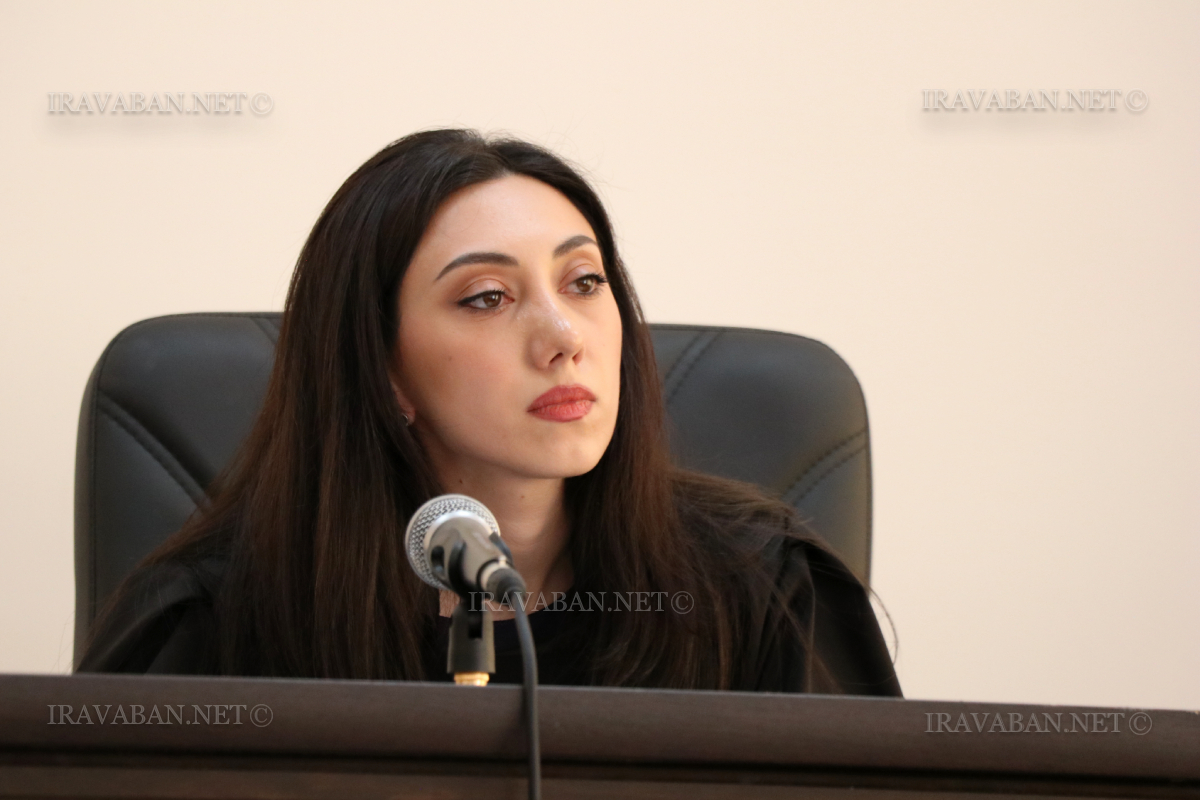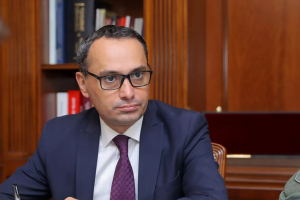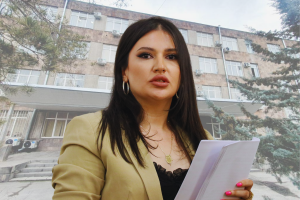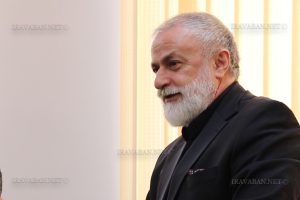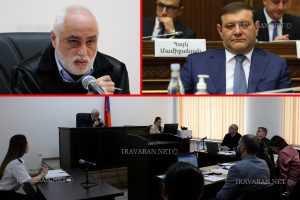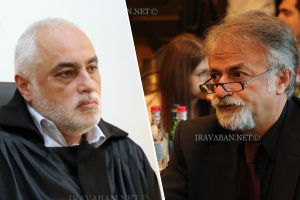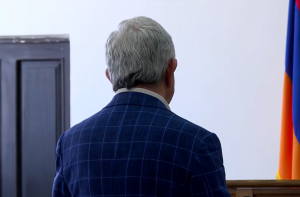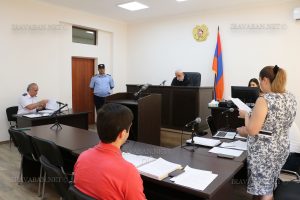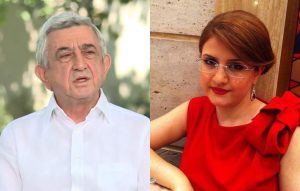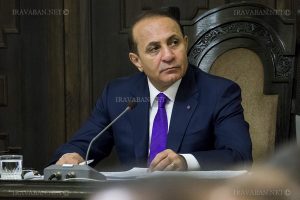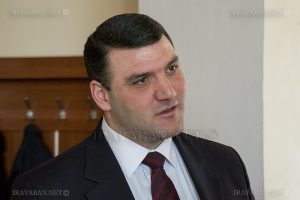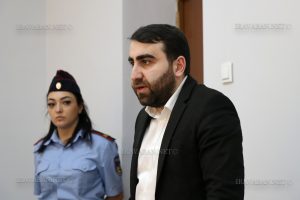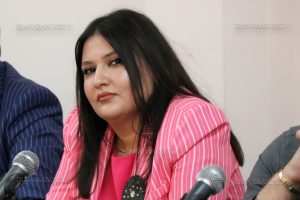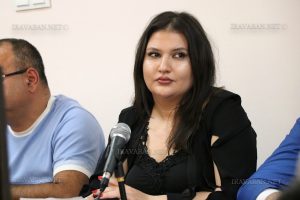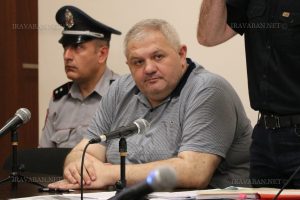On May 8, the Anti-Corruption Court continued hearing on examination of the claim about the demand for the confiscation of the illegally obtained property of the wanted former Prosecutor General Gevorg Kostanyan, his ex-wife Lilit Kostanyan, Arman Galstyan, his wife Teresa Gevorgyan and the nephew of the former Prosecutor General Ara Kostanyan.
The Department for Confiscation of Property of Illicit Origin of the Prosecutor General’s Office, requires confiscation of:
- One apartment in Yerevan, two private houses in Tsaghkadzor and Jrvezh communities of Kotayk region, and in case of impossibility, their average market value, which is 327 million 200 thousand AMD,
- 173 million 947 thousand 38 AMD as the balance of received illicit income,
- 276 million 193 thousand 454 AMD, which is not justified by the legal income of the person, has an illicit origin, was transferred to a bona fide acquirer or cannot be identified and confiscated.
According to Iravaban.net, the presiding Judge Lili Drmeyan, allowed video recording and photography of the session, as none of the parties to the trial objected. During today’s session, Ara Kostanyan’s representative, Ilona Mirzoyan, published the defendant’s position in the court, which was related to the residential house in Tsaghkadzor. The decision states that the residential house attributed to Gevorg Kostanyan does not belong to him, was not built with his funds and is not subject to confiscation.
“Gevorg Kostanyan was born on 4, October 1977. In 1994-99 he studied at YSU Faculty of Law, and after graduation, in 1999-2001 served in 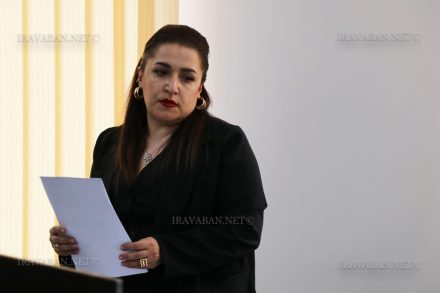 the Armed Forces and therefore in 1996, when he was a student, and after that in 1999-2001, when he was in the military service, he could not purchase or build any real estate. This residential house could not be built with his own funds, because the construction of that house started and was carried out since 1995 and was completed in 1999, the registration of ownership rights to real estate was done in 2000, when the latter was in military service,” the lawyer noted. .
the Armed Forces and therefore in 1996, when he was a student, and after that in 1999-2001, when he was in the military service, he could not purchase or build any real estate. This residential house could not be built with his own funds, because the construction of that house started and was carried out since 1995 and was completed in 1999, the registration of ownership rights to real estate was done in 2000, when the latter was in military service,” the lawyer noted. .
The background is as follows: according to the published position, Gevorg Kostanyan’s father, Surik Kostanyan, started building a residential house from scratch in 1995. In 2000, the said house was reguistered in the name of the eldest son, Gevorg Kostanyan.
“During one of their family events, in 2002, when his 2 sons were getting married on the same day, he decided and announced that he want and will present the house he built to the first grandson born from his sons. And it was his will that the house should never be sold and should passed from generation to generation. And for this reason, on the 4th birthday of his first male grandson, Ara Kostanyan, he presented the house to the latter, so that he (the grandson), in turn, will pass the house to his first male grandson and so it will continue from generation to generation. As proof of this, he also ordered the following engraving on the stone: “Let Kostanyan who will sell this house be damned”. Ara Kostanyan, the son of Surik Kostanyan’s 2nd son, Karen Kostanyan, was born in 2003, and in connection with this, Surik Kostanyan and his eldest son, Gevorg Kostanyan, handed him the certificate of ownership in 2007, which was the grandfather’s will”, the representative of Ara Kostanyan said, adding that Gevorg Kostanyan has nothing to do with the said residential house.
Nelli Ter-Torosyan, Prosecutor of the Department for Confiscation of Property of Illicit Origin of the Prosecutor General’s Office, responded 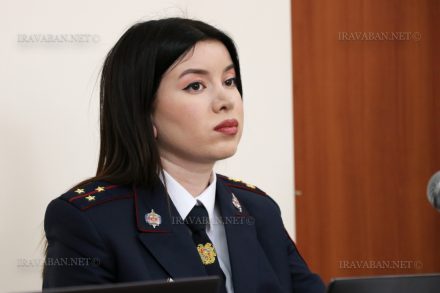 to the published material and noted that the assessment and judgments given by the department to the property are based solely on legal facts. “The judgments that were made, reflected in the claim, are based exclusively on legal facts.”
to the published material and noted that the assessment and judgments given by the department to the property are based solely on legal facts. “The judgments that were made, reflected in the claim, are based exclusively on legal facts.”
Ilona Mirzoyan insisted that the Prosecutor’s office should have found out whether Gevorg Kostanyan had funds to buy a residential house or not. “The Prosecutor General’s Office should have reflected and carried out the study fully.”
Varazdat Asatryan, the representative of Gevorg Kostanyan, stated in the court that he did not understand whether the prosecutor objects or accepts the presented position. Nelly Ter-Torosyan stated that she objects. “We do not accept.”
The lawyer tried to clarify what the Prosecutor’s office does not accept. “Do you consider all that was presented groundless and do not accept it?” The plaintiff stated that she did not want to respond.
Varazdat Asatryan continued: “I do not really appreciate such behavior. The plaintiff, in this case, has a certain legal constraint to express such positions, because she represents a body endowed with limited legal capacity. Such a response, in such a short period of time, is not acceptable. What does it mean that I object to the submitted motion without studying the content of the position, without evaluating the facts there?”
Then the judge mentioned that during this court session, the motion submitted by the plaintiff regarding the change of the subject and basis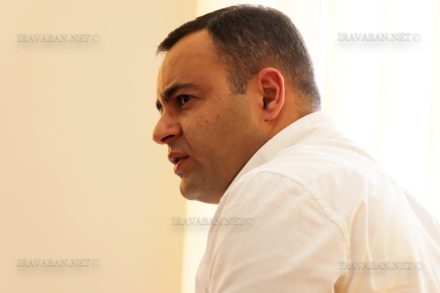 of the claim should also be discussed. The representative of Gevorg Kostanyan expressed disagreement. He mentioned that he has petitions to suspend the proceedings of the case, to apply the statute of limitations. “Please do not be in such a hurry to address the change in the subject of the lawsuit.”
of the claim should also be discussed. The representative of Gevorg Kostanyan expressed disagreement. He mentioned that he has petitions to suspend the proceedings of the case, to apply the statute of limitations. “Please do not be in such a hurry to address the change in the subject of the lawsuit.”
The judge insisted: that the court’s decision has already been taken.
The motion proposes to make changes in the statement of claim and submit a property claim against Tereza Gevorgyan as well, because the real estate in Jrvezh became Arman Galstyan’s during their marriage and is considered joint property.
According to Varazdat Asatryan, this petition cannot be satisfied, because the competent authority must conduct an investigation, record the results, draw up a conclusion and submit a lawsuit based on it. “In this case, no action was taken regarding this subject.”
Prosecutor Nelly Ter-Torosyan noted that after filing a lawsuit, the Prosecutor’s office acts as a plaintiff and benefits from all the rights and responsibilities inherent to the plaintiff in the Civil Procedure Code. “As we know, the Prosecutor’s office can also use the rights arising from administrative law in this case, which also results in submitting a change in the subject and basis of the claim.”
Ilona Mirzoyan stated that she completely objects to the presented petition.
Lili Drmeyan announced that the court will make a decision on the submitted petition in the form of a separate judicial act, which will be sent to the parties. The court session was postponed on this basis. The next session was scheduled for 5 June.
Yevgenya Hambardzumyan
